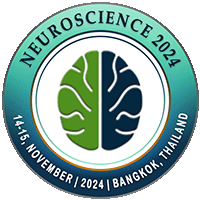
Kate Witt
Victoria University of Wellington, New ZealandTitle: The role of the dopamine D1 receptor in anticipatory pleasure and social play
Abstract
Social play is a highly rewarding activity seen across mammalian species that is vital for neurobehavioural development. Dysfunctions in social play are seen across psychiatric and neurodevelopmental disorders positing the importance of understanding the neurobiological mechanisms underlying social play. A multitude of neurotransmitter systems and brain regions have been implicated in social play, with the present study focused on the role of dopamine, specifically the dopamine D1 receptor. Given the limited selectivity of pharmacological tools, we explored the role of the dopamine D1 receptor in social play using dopamine D1 mutant (DAD1-/-) rats which have a genetic reduction in functional D1 receptors. Aligning with the rewarding properties of social play, the present study also examined anticipatory behaviour for the opportunity to engage in social play. Contrary to our predictions, DAD1-/- mutants initiated and engaged in social play similarly to wildtype controls with only subtle differences in individual play behaviour (e.g., chasing and wrestling). Subjects did not differ in 50kHz vocalisations emitted during play, suggesting similar levels of consummatory pleasure during play. Although subjects initiated and engaged in play similarly, as predicted, DAD1-/- mutants displayed deficits in anticipatory behaviour and pleasure in anticipation of the opportunity to engage in social play. These findings support a prominent role of the D1 receptor in anticipatory behaviour, but do not support a clear role in the initiation nor engagement in social play.
Biography
Kate completed her undergraduate studies in the US and moved to Aotearoa New Zealand to complete her BSc(Hons) and PhD at Victoria University of Wellington. Her background is in cognitive and behavioural neuroscience with her current research and teaching focused on educational neuroscience which is understanding the neural mechanisms of learning to improve educational outcomes. Kate's main research interests are in educational neuroscience; understanding the neural mechanisms of literacy and numeracy, translating neuroscience research into classroom practices, and examining early interventions and support for neurodevelopmental and psychological disorders.

